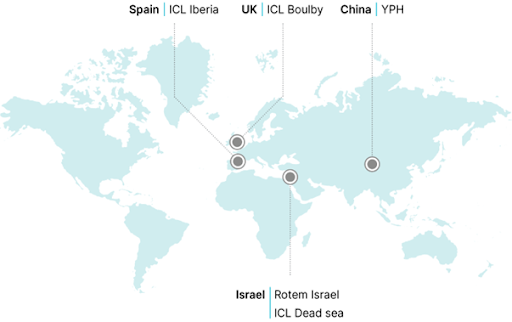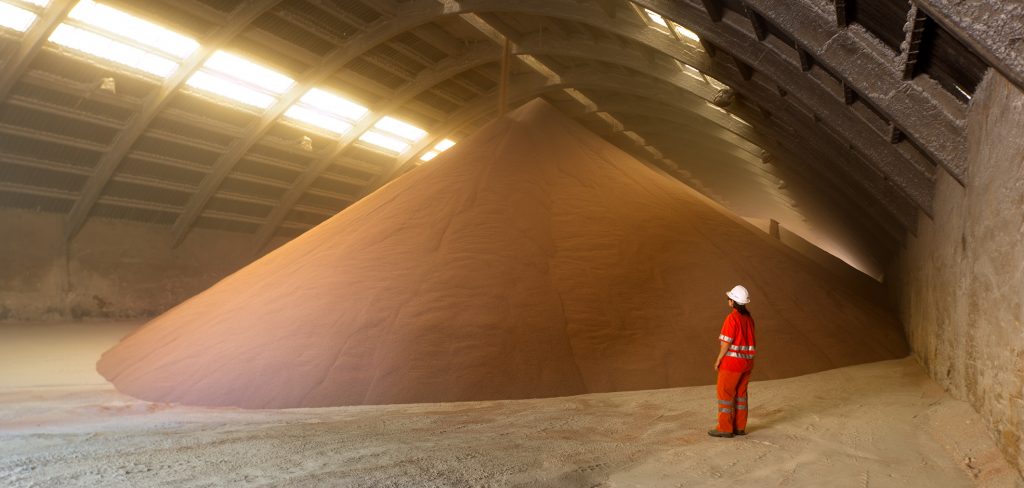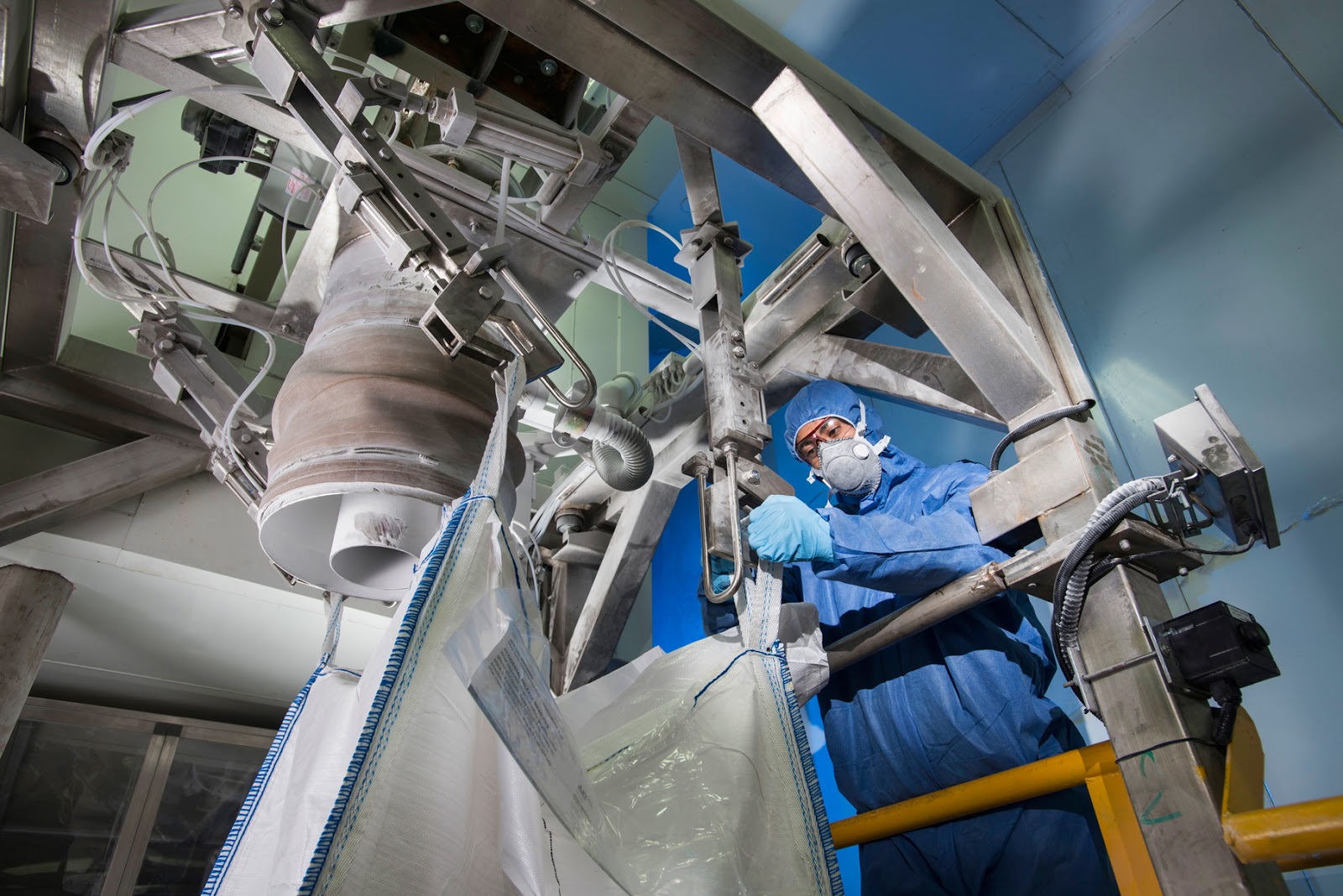The Growing Solutions segment develops, manufactures, markets, and sells fertilizers based primarily on phosphate, nitrogen, potash (potassium chloride), and polysulphate. It produces water soluble specialty fertilizers in Belgium, The Netherlands, Israel, and Spain, liquid fertilizers in Israel, Spain, and Brazil, straight soluble fertilizers in China and Israel, controlled release fertilizers in the Netherlands, Brazil, and the US, as well as secondary nutrients, bio-stimulants, soil conditioners, seed treatment product, and adjuvants in Brazil. ICL’s specialty fertilizers business markets its products worldwide, mainly in Europe, Asia, North America, Brazil, and Israel.
The primary raw materials acquired from external sources are KNO3, SOP, ammonia, NPK granules, Urea, KOH, coating materials, micronutrients and biostimulants ingredients. In addition, our specialty fertilizer business benefits from its backward integration to raw materials produced by the Company, such as KCl, MGA, GTSP, MKP and polysulphate.








